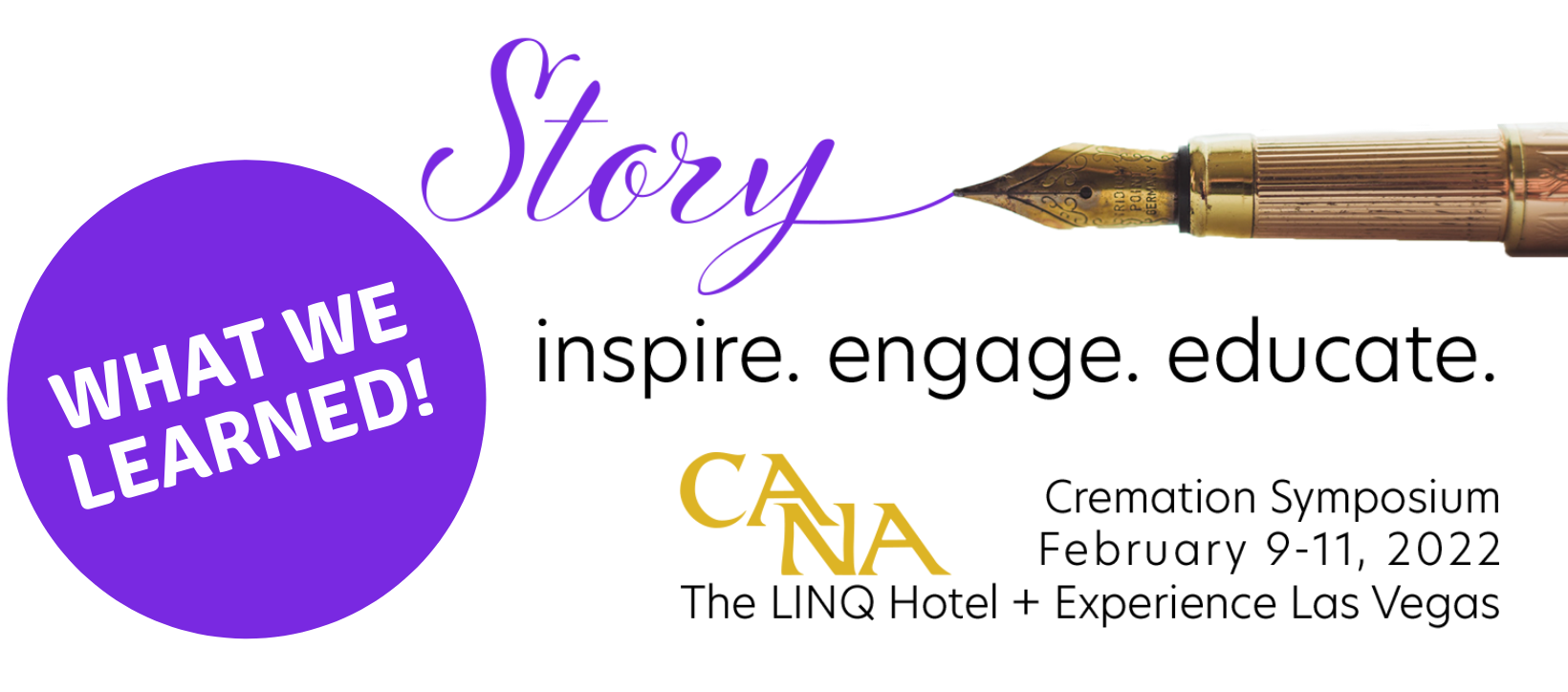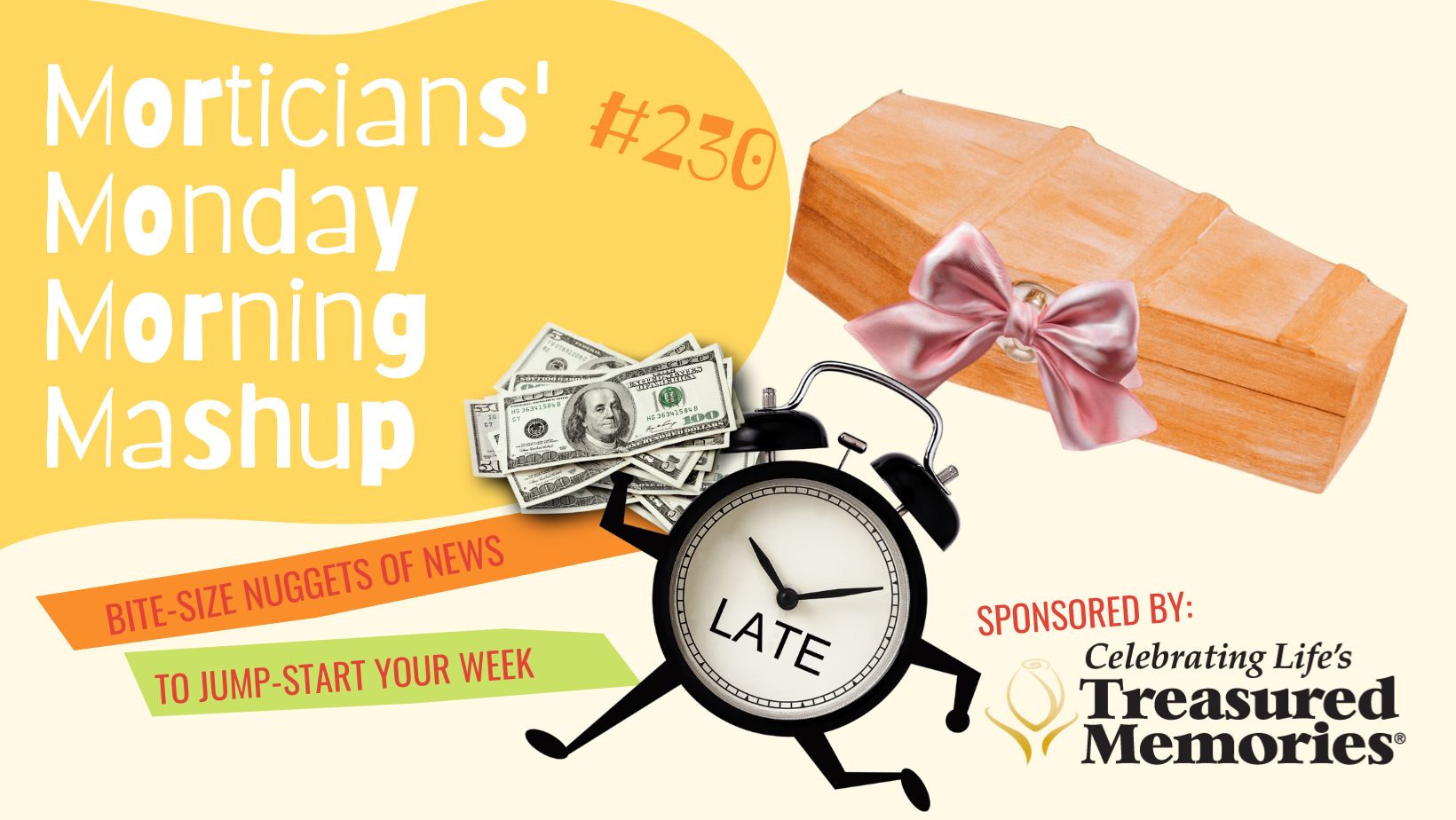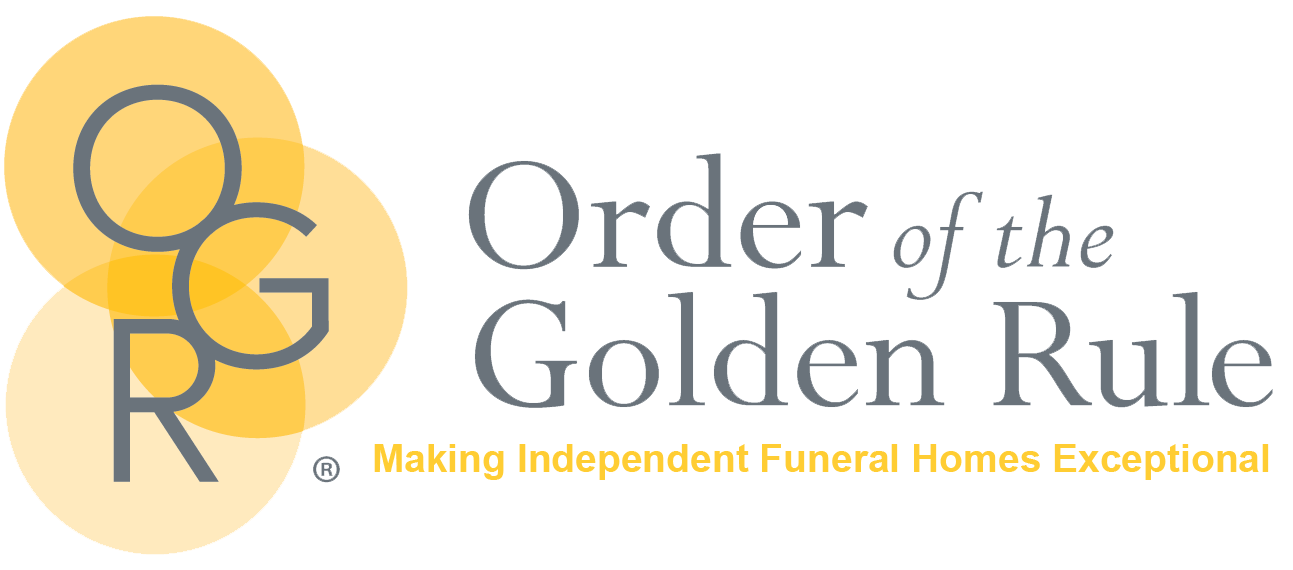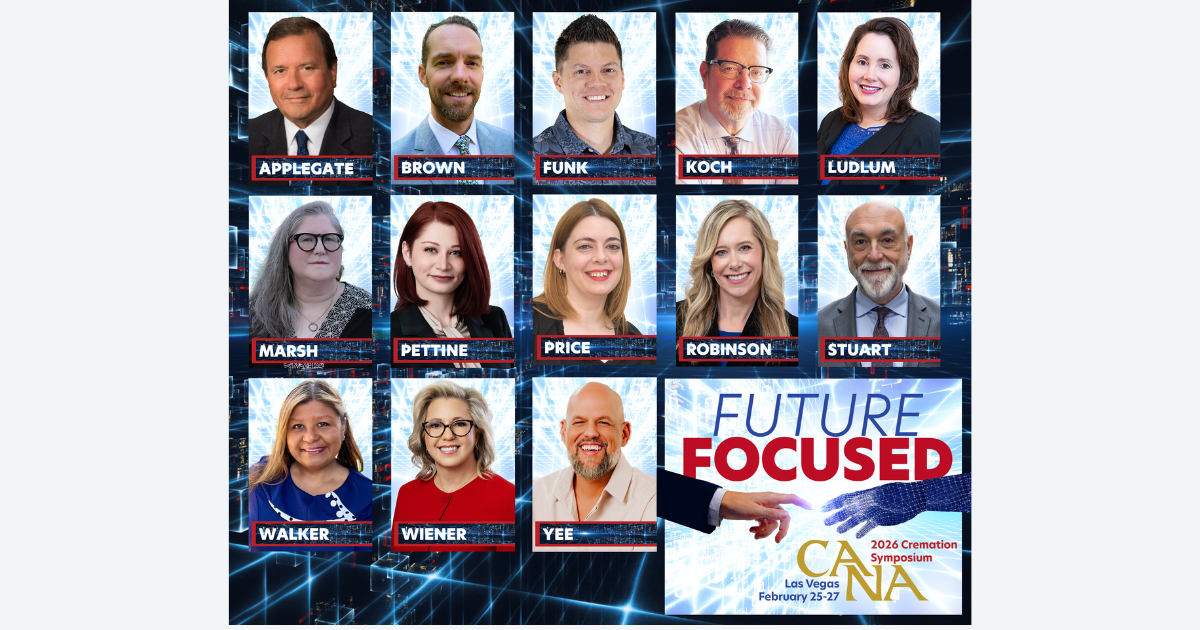CANA Symposium Happened in Vegas, But What We Learned Shouldn’t Stay There
Did you miss the Cremation Association of North America (CANA) Symposium in Las Vegas earlier this month? Understandably, call volume, budget limitations, and pandemic precautions mean every cremation professional can’t attend every industry conference. This one, though, was well worth attending — especially as it brought to the forefront a timely and important topic: Storytelling for deathcare.
Why storytelling?
If the word “storytelling” conjures up images of you sitting in your grandma’s lap while she reads to you from your favorite children’s book, let me stop you right there. Yes, storytelling in the context highlighted by CANA can be just as sweet and meaningful as those childhood memories. However, the stories that should be told these days are different — in format, purpose, message, focus, subjects, authenticity, and audience.
There’s proven science (neuroscience, at that) behind the popularity and importance of storytelling. Without getting into the biological and psychological nuts and bolts, a well-constructed storytelling narrative can actually change your brain, adjust your attitude, and influence your behavior. Our brains want to create stories to connect and make sense of the tidbits of information we hear. We want to hear narratives that flow, not disconnected bullet point lists of facts.
Most industries have already embraced the concept of business storytelling … but, as we know, there seems to be a longer learning curve in deathcare. Thankfully, CANA stepped in to close that gap for cremation professionals with their 2022 symposium with passionate speakers sharing relatable and actionable ideas.
What’s your story, mourning glory?
Think you don’t have any stories to tell? Oh, but you do. Not only does your business have stories, but so do the families you serve. Your employees have stories, too. Your services are stories. Your culture is a story. Your creativity and your code of ethics are all stories. And all of these stories were covered at the CANA Symposium.
Andrew Buck, Content Strategist at marketing agency Mighty Citizen, kicked off the sessions with an energetic explanation of how storytelling could work in the funeral profession. You can tell the story of your firm’s origins, mission, staff, and your products and services, he said. Understand, though, that those stories are all about you. The better stories to tell, Buck said, are about the families you serve — especially those you can’t get out of your mind. Ask those families concrete questions about the deceased; helping them to tell their story, Buck says, will also help them deal with their loss.
“Stories are ordering, sense-making machines,” Buck said, “and funeral directors are dealing with people [in a situation] where nothing makes sense.”
Telling these stories through video and on social media is an excellent way to market your services (if this sounds familiar, it might be because Ryan and the DISRUPT Media team have been telling your amazing stories like this since the get-go). At the CANA Symposium, LAads’ Rolf Gutknecht not only backed up the idea that your message should be delivered on multiple platforms — he also dared deathcare professionals to take risks, surprising your audience with fascinating, creative, “outside in” advertising that’s not about “us, I, or we.”
“Stop saying the same things the same way, over and over,” Gutknecht advised the audience, adding that clarity, simplicity, surprise, emotionality, and uniqueness are the five values of effective marketing.
Storytelling in action
Did you realize the way you talk about what you do is a form of storytelling? The words you choose when communicating with your team and your families can hold volumes of meaning. This is something Angelique Simpson of Matthews Aurora Funeral Solutions explained at the CANA Symposium.
For example, do you ever utter the phrase, “JUST cremation?” With these words, you’re minimizing the importance and scope of the cremation process, suggesting a quick direct cremation, and setting that tone for the rest of your conversation. A better way to offer options to your families, Simpson said, is something like this: “Are you interested in casket burial or cremation burial?”
Funeral director/embalmer Lacy Robinson expanded on this theme in her presentation on dealing with the DIY consumer. As she explained, and as you’ve probably experienced, families are adding more of their own personal touches to the services you offer. In some instances, they’re making or procuring items you’d usually sell them and arranging and setting up off-site venues that tell a better story about their loved one. In the process, you’re fading into the background and missing out on revenue.
Robinson suggested that directors take a more active role in embracing and partnering with the DIY consumer and actively suggesting creative ways to celebrate the life of the deceased. Asking questions about the person’s life and what they enjoyed doing and using words like, “I was thinking of a few ways we could honor her interest in …” gets the conversation started.
By keeping up with creative trends and demonstrating your expertise, you can serve as an idea generator rather than a bystander. Your families will remember your participation and the creative way you helped them tell their loved one’s story.
Ethical storytelling
Chris Cruger, CEO at The Foresight Companies, rounded out the symposium presentations with some data and recommendations on ethical behavior in the funeral service, and how it ultimately impacts your families’ level of satisfaction. In an age where every error or oversight results in instant media coverage and other devastating repercussions, ensuring an ethical establishment is more important than ever.
Cruger explained that most of the shifts the pandemic forced in the funeral service are permanent, but about one-third of the deathcare profession failed to adapt. More consumers are demanding transparency, convenience, and online amenities, so online pricing on an easy-to-navigate website is a must, as are complimentary livestreams. Cruger said 15% of consumers expect you to visit their home to make arrangements, and 41% expect to make them virtually. It’s up to you and your staff to meet and exceed these expectations.
Two symposium panels reiterated the importance of storytelling in the profession — especially when it comes to cremation. It’s up to deathcare professionals to have conversations that change the narrative of what cremation actually is. It’s more than a transaction, and you’re more than a salesperson. You’re a storyteller who is blessed with the opportunity to tell and honor your families’ stories, as well as your own team’s stories, every day!
Can DISRUPT Media or Connecting Directors help you tell YOUR story? Reach out to Ryan at ryan@connectingdirectors.com and let us know!




